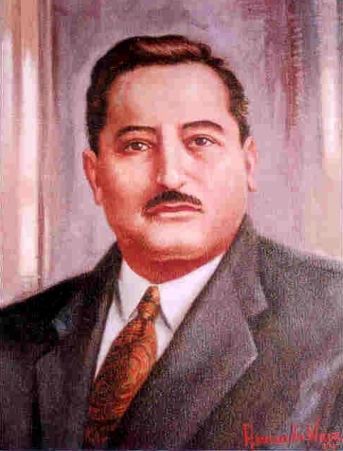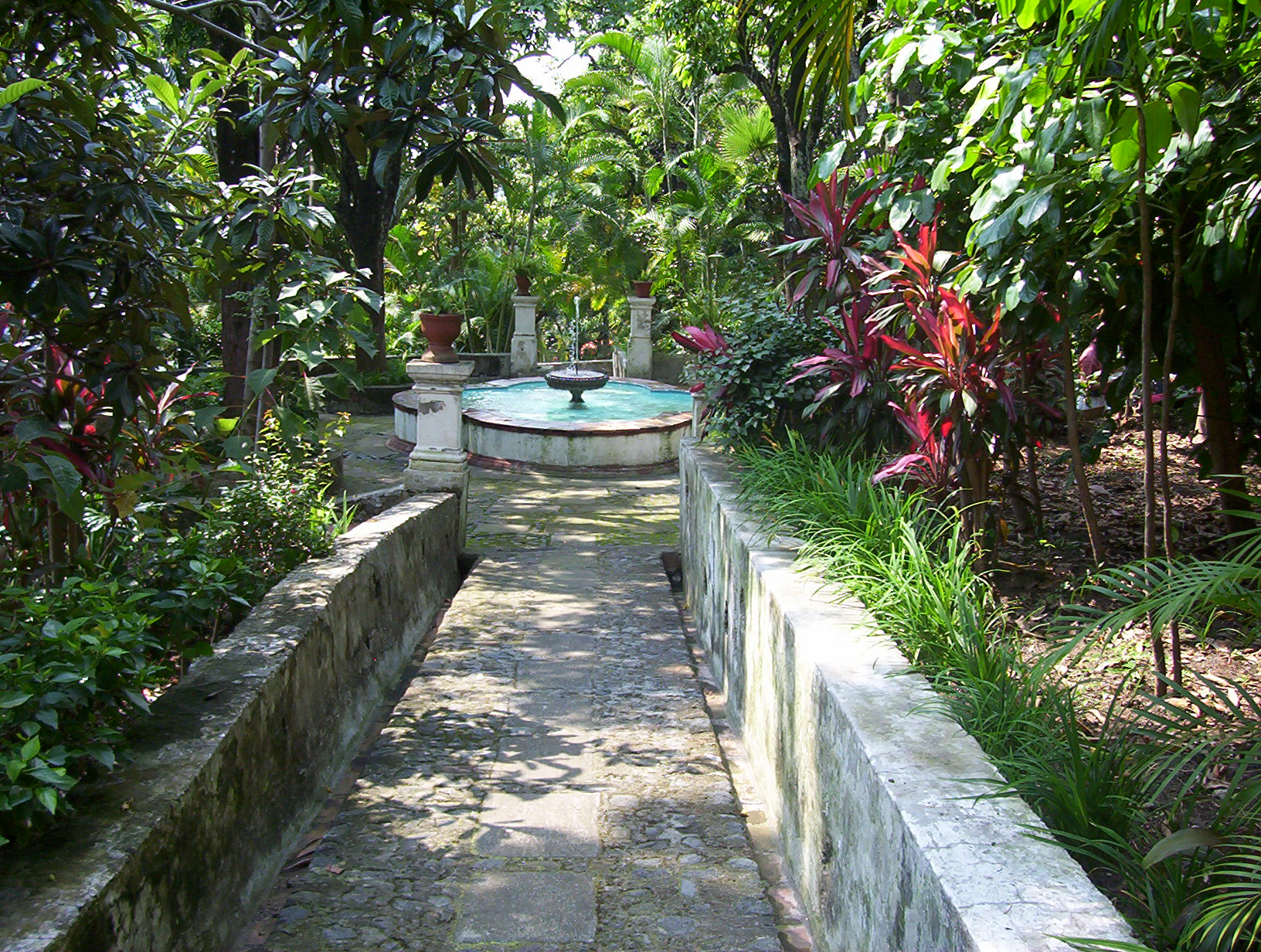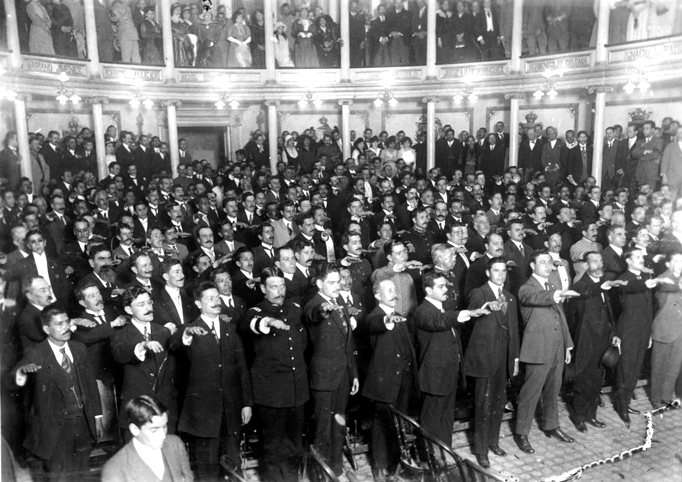|
Leopoldo Sánchez Celis
Leopoldo Sánchez Celis (February 14, 1916 – August 7, 1989) was a Mexican politician who was governor of Sinaloa from 1963 to 1968. He belonged to the Institutional Revolutionary Party (PRI), having been elected as a Senator for that party representing Sinaloa. One of his personal bodyguards was the drug trafficker and ex-police officer Miguel Ángel Félix Gallardo Miguel Ángel Félix Gallardo (born January 8, 1946), commonly referred to by his aliases ''El Jefe de Jefes'' ('The Boss of Bosses') and ''El Padrino'' ('The Godfather'), is a convicted Mexican drug kingpin who was one of the founders of the ..., with whom he maintained an extensive friendship,https://www.infobae.com/america/mexico/2019/12/04/complicidad-entre-el-poder-y-el-narco-asi-empezo-la-historia-hace-41-anos/ so much so that Félix Gallardo was the best man at the wedding of one of his sons, Rodolfo Sánchez Duarte, in 1983. He was tortured and murdered, allegedly on the orders of Félix Gallardo ... [...More Info...] [...Related Items...] OR: [Wikipedia] [Google] [Baidu] |
Governor Of Sinaloa
List of governors of the Mexico, Mexican States of Mexico, state of Sinaloa: References External links List of governors of Sinaloa. {{DEFAULTSORT:Governor Of Sinaloa Lists of governors of States of Mexico, Sinaloa Governors of Sinaloa, * ... [...More Info...] [...Related Items...] OR: [Wikipedia] [Google] [Baidu] |
Gabriel Leyva Velázquez
Gabriel Leyva Velázquez (June 30, 1896 - March 19, 1985) was a Mexican military man and politician. He was born in Los Humayes, San Ignacio, Sinaloa, on June 30, 1896. At the age of 14 he was orphaned. He studied at the Normal School of Teachers in Mexico City. He was appointed a member of Pablo Macías Valenzuela's General Staff. Once the revolution was over he fought in the Cristero War. He held various positions in the federal government and was interim governor of Sinaloa in 1935. He was governor of Sinaloa from January 1, 1957 to December 31, 1962. During his mandate, several works were carried out, such as the Theater of the Americas at the General Insurgentes Secondary School in Guasave Guasave () is a city and the seat of the homonymous municipality known as the Agricultural Heart of Mexico (El Corazon Agricola de Mexico) in the Mexican state of Sinaloa. It is located in the northwestern part of Mexico, 62km (38 miles) southeas ..., the Constitución Civic Center and t ... [...More Info...] [...Related Items...] OR: [Wikipedia] [Google] [Baidu] |
Alfredo Valdés Montoya
Alfredo Valdés Montoya (14 February 1920 - 14 February 2014) was a Mexican politician who was governor of Sinaloa from 1969 to 1974. He was born on February 14, 1920, in Villa de Ahome, Sinaloa Sinaloa (), officially the (), is one of the 31 states which, along with Mexico City, compose the Federal Entities of Mexico. It is divided into 18 municipalities, and its capital city is Culiacán Rosales. It is located in northwest Mexic .... He studied a Bachelor's Degree in Economics at the University of Guadalajara. He then worked in the federal Treasury Department. He developed the industrial and urban planning scheme of Mazatlán, Culiacán, Guasave and Ahome. He gave the communities in the highlands paved roads and complete school services. During his governorship, Sinaloa then achieved an annual growth rate of 7.5 percent, far exceeding the national growth rate. He married Judith Gaxiola and had 4 children, Mara, Judith, Alfredo and Alfonso. He died in Culiacán on his 94 ... [...More Info...] [...Related Items...] OR: [Wikipedia] [Google] [Baidu] |
Cosalá
Cosalá () is a small city and the seat of its surrounding municipality in the Mexican state of Sinaloa. It stands at . The city reported 6,577 inhabitants in the 2010 census. Overview The Royal of the Eleven Thousand Virgins, shortened its name to the Royal Mines of Cosalá is the municipal seat. Francisco Iriarte y Conde, governor of Occidente State declared Cosalá the capital of the western state in 1826. This was due to the growing threat of attack on the former capital El Fuerte, Sinaloa by the forces of Juan Banderas, leader of the Yaqui at that point in the Yaqui Wars.Edward H. Spicer, ''Cycles of Conquest'' (Tucson: University of Arizona Press, 1962) p. 60 Iriarte introduced printing in Sonora and Sinaloa and it was in Cosalá that the first newspaper of Sinaloa, "The Impartial Spectator" was published. In its surroundings are attractions such as the Vado Hondo waterfall and town reservoirs "Comedero" and "El Salto" a few miles from town. Both these lakes are st ... [...More Info...] [...Related Items...] OR: [Wikipedia] [Google] [Baidu] |
Cuernavaca
Cuernavaca (; , "near the woods" , Otomi language, Otomi: ) is the capital and largest city of the Mexican state, state of Morelos in Mexico. Along with Chalcatzingo, it is likely one of the origins of the Mesoamerica, Mesoamerican civilization. Olmec works of art, currently displayed in the Museum of Anthropology in Mexico City were found in the Gualupita III archeological site. The city is located south of Mexico City and reached via a 90-minute drive using the Mexican Federal Highway 95D, Federal Highway 95D. The name ''Cuernavaca'' is a phonaesthetics, euphonism derived from the Nahuatl toponym and means 'surrounded by or close to trees'. The name was Hispanicized to ''Cuernavaca''; Hernán Cortés called it ''Coadnabaced'' in his letters to Charles V, Holy Roman Emperor, and Bernal Díaz del Castillo used the name ''Cuautlavaca'' in his chronicles. The coat-of-arms of the municipality is based on the pre-Columbian pictograph emblem of the city that depicts a tree trunk ... [...More Info...] [...Related Items...] OR: [Wikipedia] [Google] [Baidu] |
Mexican People
Mexicans () are the citizens and nationals of the Mexico, United Mexican States. The Mexican people have varied origins with the most spoken language being Spanish language, Spanish, but many also speak languages from 68 different Languages of Mexico, Indigenous linguistic groups and other languages brought to Mexico by expatriates or recent immigration. In 2020, 19.4% of Mexico's population identified as Indigenous peoples of Mexico, Indigenous. There are currently about 12 million Mexican nationals residing outside Mexico, with about 11.7 million living in the United States. The larger Mexican diaspora can also include individuals that trace ancestry to Mexico and self-concept, self-identify as Mexican but are not necessarily Mexican citizenship, Mexican by citizenship. The United States has the largest Mexican population in the world after Mexico at 10,918,205 in 2021. The modern nation of Mexico achieved independence from the Spanish Empire in 1821, after a decade-long war ... [...More Info...] [...Related Items...] OR: [Wikipedia] [Google] [Baidu] |
Institutional Revolutionary Party
The Institutional Revolutionary Party (, , PRI) is a List of political parties in Mexico, political party in Mexico that was founded in 1929 as the National Revolutionary Party (, PNR), then as the Party of the Mexican Revolution (, PRM) and finally as the PRI beginning in 1946. The party held uninterrupted power in the country and controlled the President of Mexico, presidency twice: the first one was for 71 years, from 1929 to 2000, the second was for six years, from 2012 to 2018. The PNR was founded in 1929 by Plutarco Elías Calles, Mexico's paramount leader at the time and self-proclaimed (Supreme Chief) of the Mexican Revolution. The party was created with the intent of providing a political space in which all the surviving leaders and combatants of the Mexican Revolution could participate to solve the severe political crisis caused by the assassination of president-elect Álvaro Obregón in 1928. Although Calles himself fell into political disgrace and was exiled in 1936 ... [...More Info...] [...Related Items...] OR: [Wikipedia] [Google] [Baidu] |
Sinaloa
Sinaloa (), officially the (), is one of the 31 states which, along with Mexico City, compose the Federal Entities of Mexico. It is divided into 18 municipalities, and its capital city is Culiacán Rosales. It is located in northwest Mexico and is bordered by the states of Sonora Sonora (), officially Estado Libre y Soberano de Sonora (), is one of the 31 states which, along with Mexico City, comprise the Administrative divisions of Mexico, Federal Entities of Mexico. The state is divided into Municipalities of Sonora, 72 ... to the northwest, Chihuahua (state), Chihuahua to the north and Durango to the east, both across the Sierra Madre Occidental; and Nayarit to the southeast. To the west, Sinaloa faces Baja California Sur, across the Gulf of California. The state covers an area of and includes the islands of Palmito Verde, Palmito de la Virgen, Altamura, Santa María, Saliaca, Macapule, and San Ignacio. In addition to the capital city, the state's important cities inc ... [...More Info...] [...Related Items...] OR: [Wikipedia] [Google] [Baidu] |
Miguel Ángel Félix Gallardo
Miguel Ángel Félix Gallardo (born January 8, 1946), commonly referred to by his aliases ''El Jefe de Jefes'' ('The Boss of Bosses') and ''El Padrino'' ('The Godfather'), is a convicted Mexican drug kingpin who was one of the founders of the Guadalajara Cartel, which controlled much of the drug trafficking in Mexico and the corridors along the Mexico–United States border in the 1980s. Félix Gallardo was arrested in 1989 on charges of ordering the murder of Drug Enforcement Administration (DEA) agent Enrique "Kiki" Camarena. He was serving his 40-year sentence at the Altiplano maximum-security prison but was transferred to a medium-security facility in 2014 due to his declining health. Early life Born on a ranch in Bellavista, on the outskirts of Culiacán, Sinaloa, Félix Gallardo graduated from high school and studied business in college. He took a job as a Mexican Federal Judicial Police agent. He worked as a family bodyguard for the governor of Sinaloa state Leopo ... [...More Info...] [...Related Items...] OR: [Wikipedia] [Google] [Baidu] |
1916 Births
Events Below, the events of the First World War have the "WWI" prefix. January * January 1 – The British Empire, British Royal Army Medical Corps carries out the first successful blood transfusion, using blood that has been stored and cooled. * January 9 – WWI: Gallipoli Campaign – The last British troops are evacuated from Gallipoli, as the Ottoman Empire prevails over a joint British and French operation to capture Constantinople. * January 10 – WWI: Erzurum Offensive – Russia defeats the Ottoman Empire. * January 12 – The Gilbert and Ellice Islands Colony, part of the British Empire, is established in modern-day Tuvalu and Kiribati. * January 13 – WWI: Battle of Wadi (1916), Battle of Wadi – Ottoman Empire forces defeat the British, during the Mesopotamian campaign in modern-day Iraq. * January 29 – WWI: Paris is bombed by German Empire, German zeppelins. * January 31 – WWI: An attack is planned on Verdun, France. Febru ... [...More Info...] [...Related Items...] OR: [Wikipedia] [Google] [Baidu] |
1989 Deaths
1989 was a turning point in political history with the " Revolutions of 1989" which ended communism in Eastern Bloc of Europe, starting in Poland and Hungary, with experiments in power-sharing coming to a head with the opening of the Berlin Wall in November, the Velvet Revolution in Czechoslovakia and the overthrow of the communist dictatorship in Romania in December; the movement ended in December 1991 with the dissolution of the Soviet Union. Revolutions against communist governments in Eastern Europe mainly succeeded, but the year also saw the suppression by the Chinese government of the 1989 Tiananmen Square protests in Beijing. It was the year of the first Brazilian direct presidential election in 29 years, since the end of the military government in 1985 that ruled the country for more than twenty years, and marked the redemocratization process's final point. F. W. de Klerk was elected as State President of South Africa, and his regime gradually dismantled th ... [...More Info...] [...Related Items...] OR: [Wikipedia] [Google] [Baidu] |
Governors Of Sinaloa
A governor is an administrative leader and head of a polity or political region, in some cases, such as governors-general, as the head of a state's official representative. Depending on the type of political region or polity, a ''governor'' may be either appointed or elected, and the governor's powers can vary significantly, depending on the public laws in place locally. The adjective pertaining to a governor is gubernatorial, from the Latin root ''gubernare''. In a federated state, the governor may serve as head of state and head of government for their regional polity, while still operating under the laws of the federation, which has its own head of state for the entire federation. Ancient empires Pre-Roman empires Though the legal and administrative framework of provinces, each administered by a governor, was created by the Romans, the term ''governor'' has been a convenient term for historians to describe similar systems in antiquity. Indeed, many regions of the pre-Roman ... [...More Info...] [...Related Items...] OR: [Wikipedia] [Google] [Baidu] |





